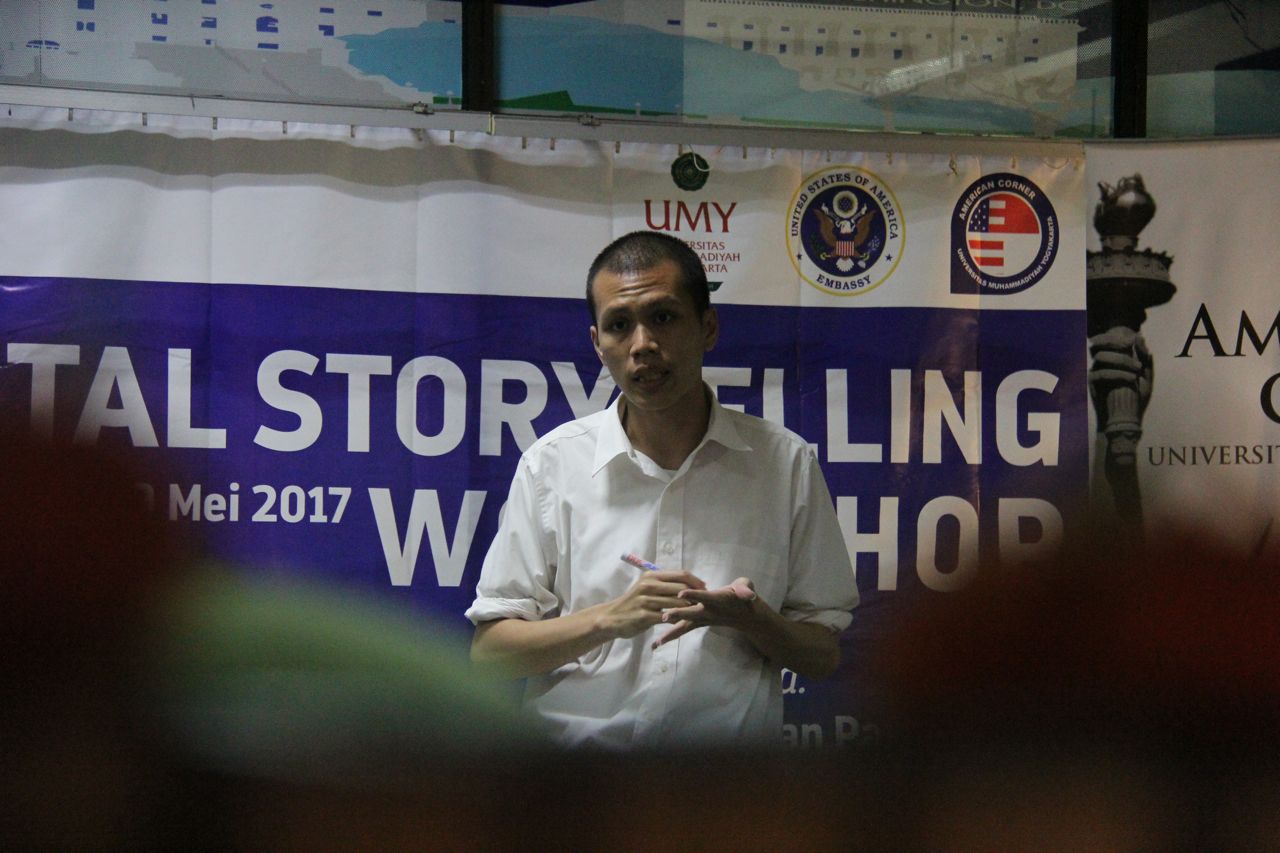Why do we often hear bad news? Media frequently reports bad news instead of good news. Our brain possesses a more tendency to bad news than good news. It responds dangerous things which may endanger our life, and it also becomes more sensitive when responding negative things. Thus, our brain instinctively pays attention on bad news. Indeed, the negative behavior has been from father to son.
In a digital story telling workshop conducted by American Corner (Amcor) of UniversitasMuhammadiyah (UMY) on Thursday (18/5), Co-Founder of an educative channel of ‘KokBisa?’ Gerald Sebastian maintained that the bad news appears due to political interest of media industries. “News is reported by journalist who may often confront conflict of interests from their employers. They have to forcefully write news from negative perspective since they are afraid of losing their job,” told Gerald while playing a video.
Hence, media literacy is essential to enhance people’s critical thinking of news. “Most of Indonesian people are very reactive toward news. Once they heard or see news, they immediately respond to it and give comments. The media literacy has not been applied yet in Indonesia. It can be applied in daily life such as reading a newspaper, watching television, and listening radio, and then we can analyze the differences of the broadcast news. Thus, through this way, we can be critical of the news,” he asserted.
Meanwhile, a reporter of The Jakarta Post Sebastian Partogi shared his experience in journalism. He contended that journalism is more than just learning to write. “Journalism is defined as an activity of sharing information to public for public interest. In the practice, the main activity of journalism is writing. However, besides writing, we have to train our way of thinking since we will use it in not only writing but also other activities,” explained Sebastian.
A journalist should lay fundamental elements which differentiate her/him with other people. “First, a journalist have to be independent and can accommodate public interests. Second, she/he should highly uphold truth and verification. Third, they should be relevant, comprehensive, and proportional. These characters distinguish her/him from the people who always telling hoaxes,” he mentioned.
Ogi, Sebastian’s nickname, commented on journalism nowadays. He believed that journalists today should be more flexible. “Today’s trend is that there is media convergence. On the other words, on similar contents, there are not only texts but also pictures, videos, or infographics. Hence, a journalist should be multi-talented,” he declared.







